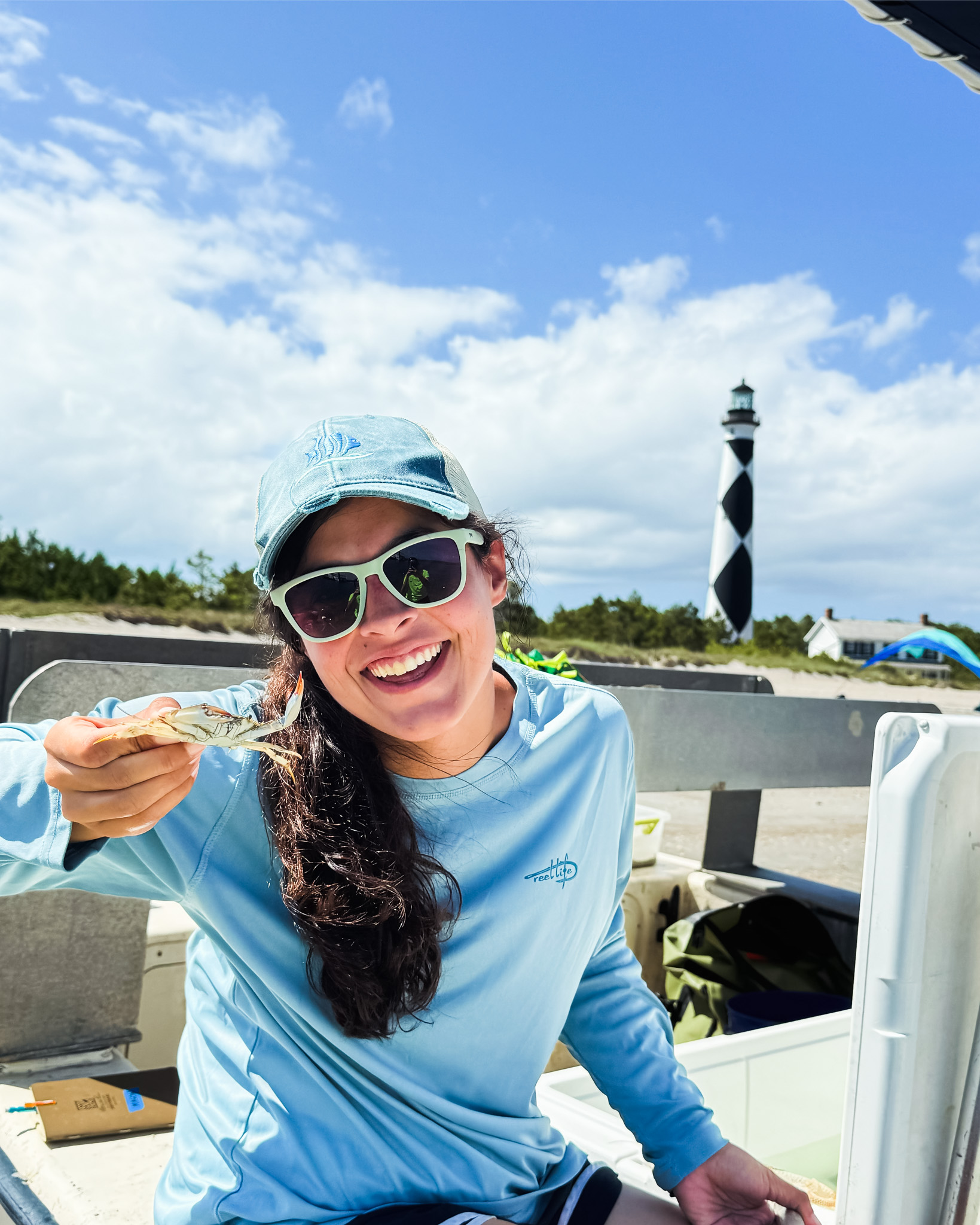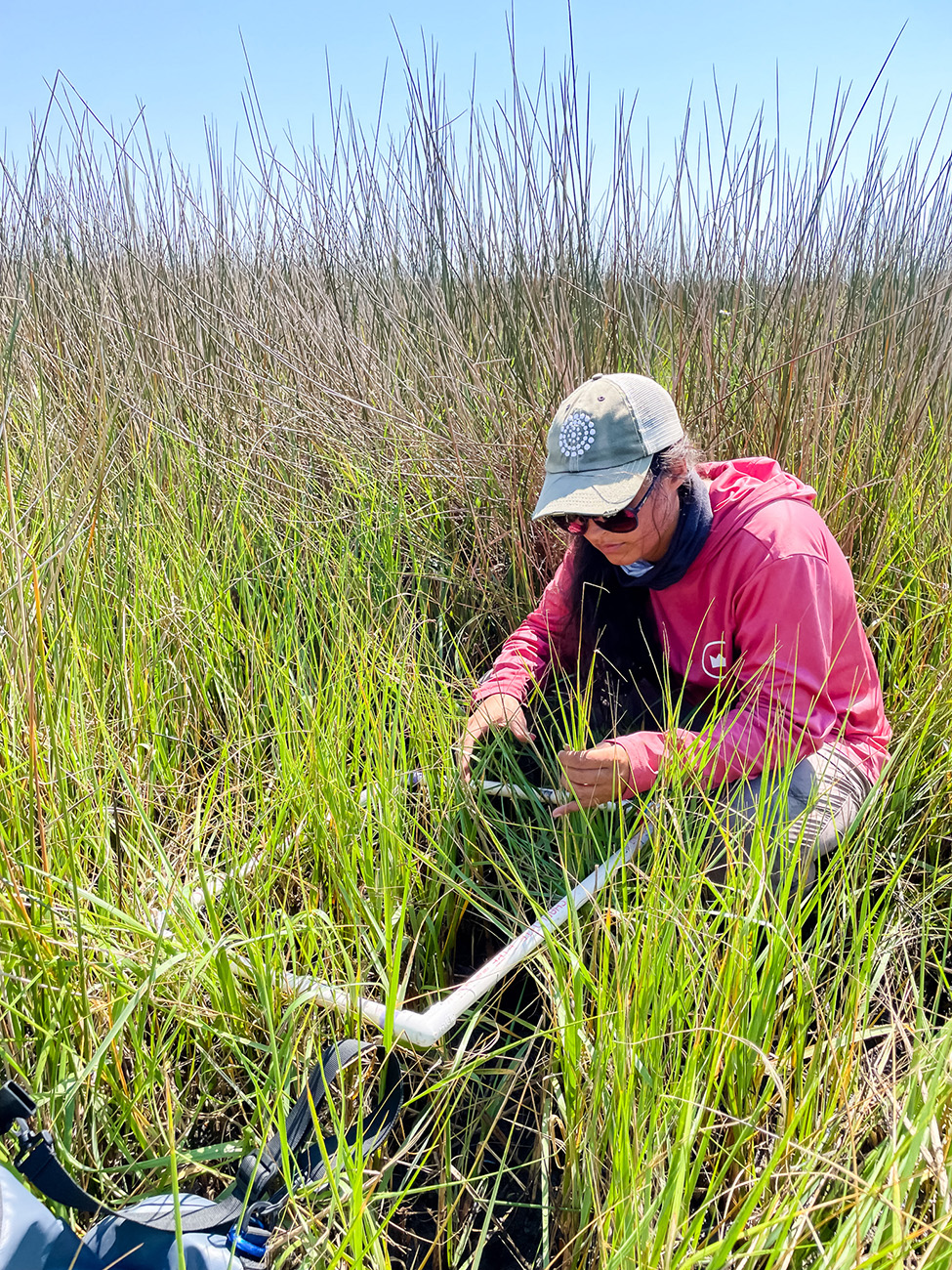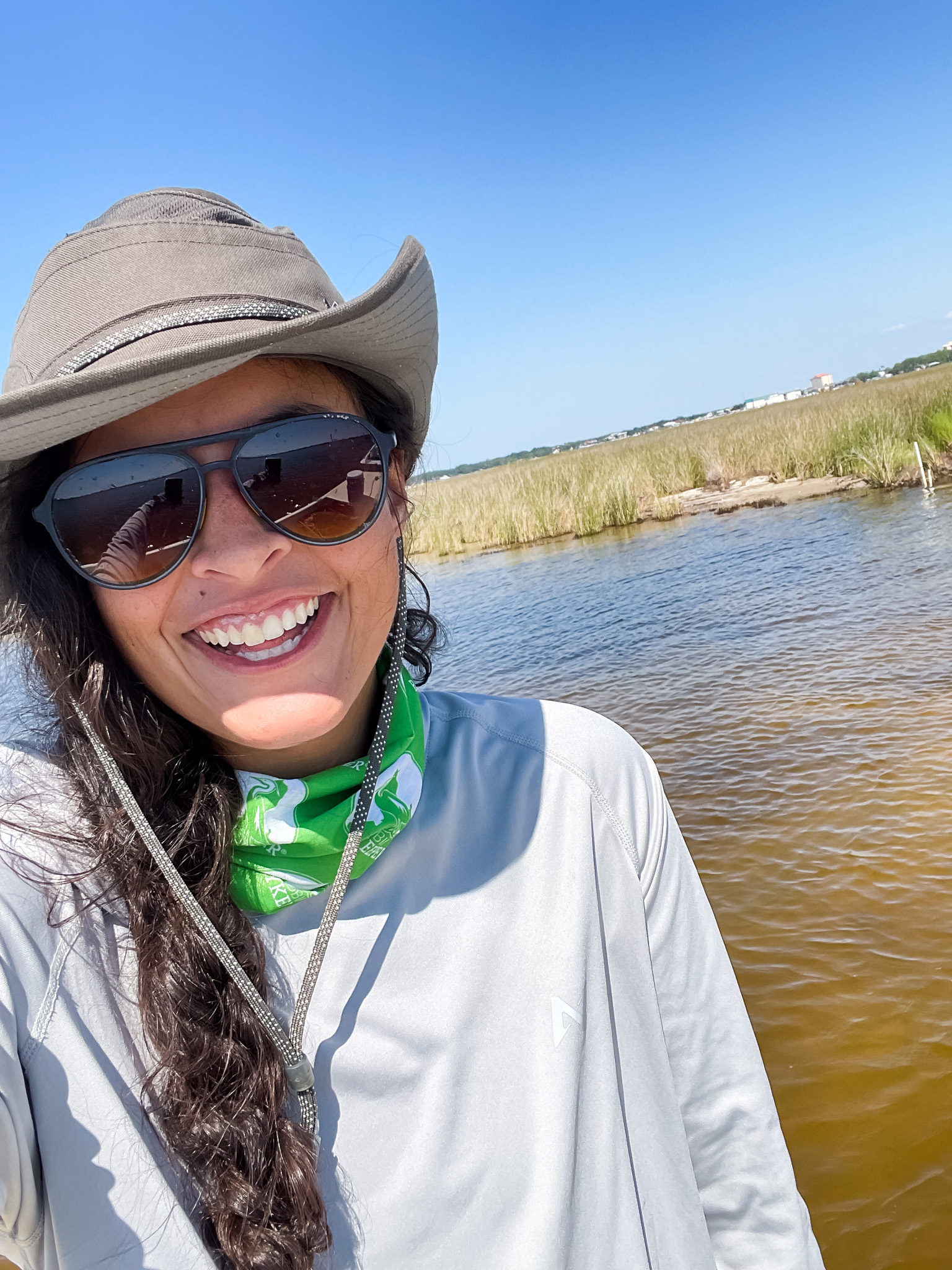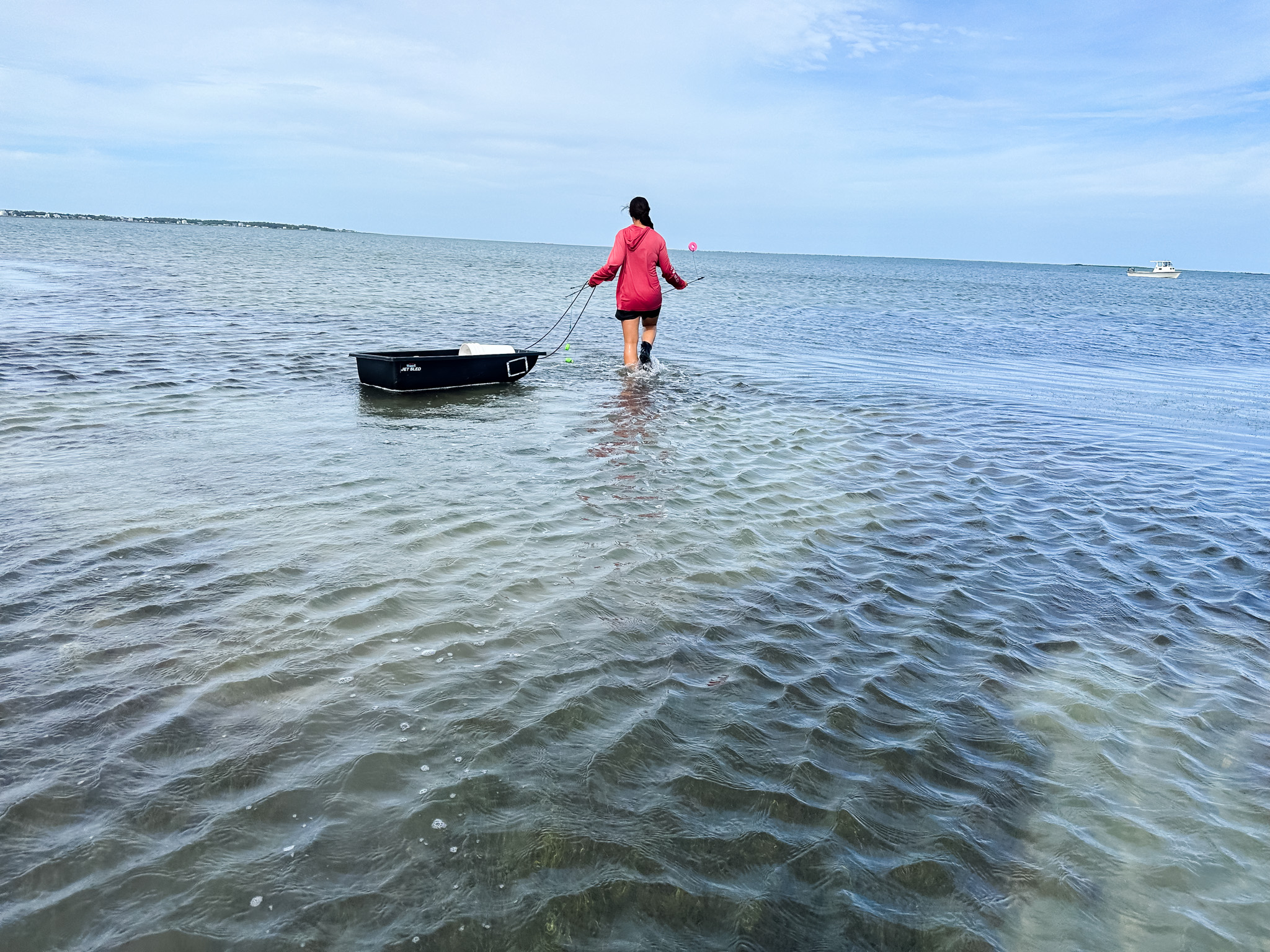GCSU alum earns $40,000 Quad Fellowship award
Produced by University Communications
N
adya Gutierrez, ’22, was one of 10 U.S. citizens and 50 people worldwide to earn a Quad Fellowship this year.
The fellowship, worth $40,000, is an initiative by the governments of Australia, India, Japan and the United States to build ties between scientists. The fellowship sponsors “master's and doctoral students to study science, technology, engineering and mathematics (STEM) in the United States.”

The Quad Fellowship is managed by a non-governmental task force with leaders from each country and administered by the Institute of International Education, a global non-profit.
“This fellowship gives me the freedom to study the questions that interest me and that I think are important,” Gutierrez said. “Outside of that, I’m invited into a unique cohort of other fellows. Having international, multicultural perspectives can be really valuable.”
“An engineer would solve a problem differently than I would as an ecologist, but we can work together to help each other address the problems that we're trying to address, and hopefully build a community that really supports each other,” she said.
Awarded the Hollings Scholarship as an undergraduate, Gutierrez studied environmental science and freshwater ecology at Georgia College & State University with academic assistance and an internship with NOAA.

Gutierrez got her first taste of research at Georgia College, where she studied diversity among insect larva populations in the local lakes of Milledgeville alongside Dr. Kristine White, associate professor of biology.
“Every experience provides you with different opportunities, and that project allowed me to look at tiny organisms and learn the things that differentiate them,” Gutierrez said. “When I graduated, I got a job in southern Alabama looking at marine crustaceans and invertebrates. My research positioned me to be good at identifying small things, and that skill was highly valued there.”
Now, Gutierrez studies seagrass meadows and how habitat fragmentation may alter water flow throughout these ecosystems, which may have implications on coastal regions ability to mitigate shoreline erosion through wave energy dissipation, as a doctorate student at UNC Chapel Hill.
“Seagrass is a very important ecosystem, and it’s a nursery habitat for organisms we and bigger fish like to eat, such as blue crab and shrimp,” she said. “In North Carolina, we’re seeing shifts from continuous to patchy meadows, and this could alter things.”

Gutierrez is in her second year of doctoral studies, based at the Institute of Marine Sciences in Morehead City, North Carolina.
To secure the Quad Fellowship, Gutierrez worked with Anna Whiteside, assistant director of Georgia College’s National Scholarships Office, which offers help to undergraduates and alumni of Georgia College.
“To know I had funding lined up and that was one less thing I had to worry about was such a privilege, and really humbling,” Gutierrez said. “I love being integrated into a really big lab, helping other grad students and spending days on the water.”
“I go out into the seagrass and see the stingrays and sharks that live there,” she said. “Grad school is a lot of work but I’m lucky that I love what I do, and the day-to-day is really exciting.”
